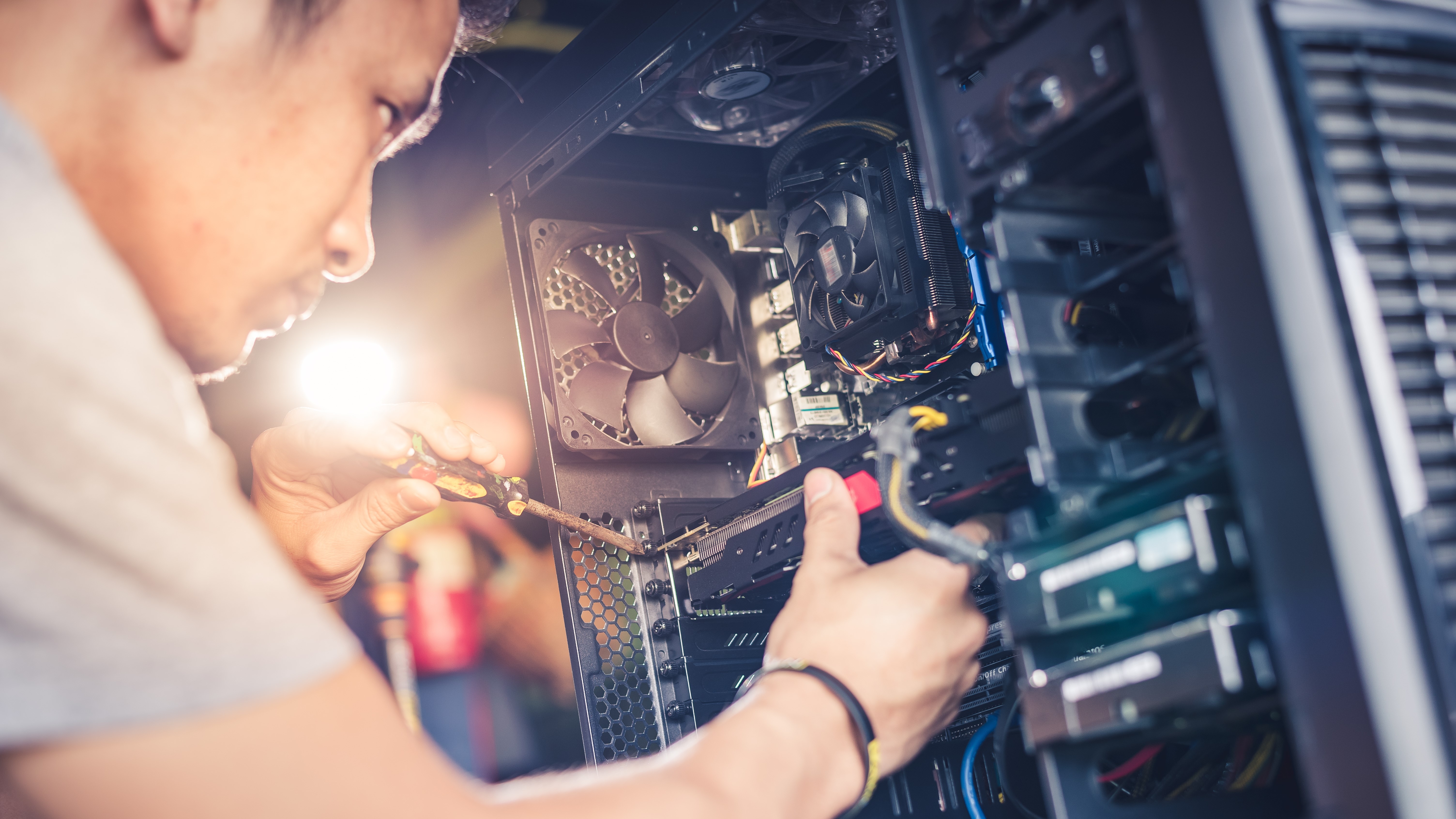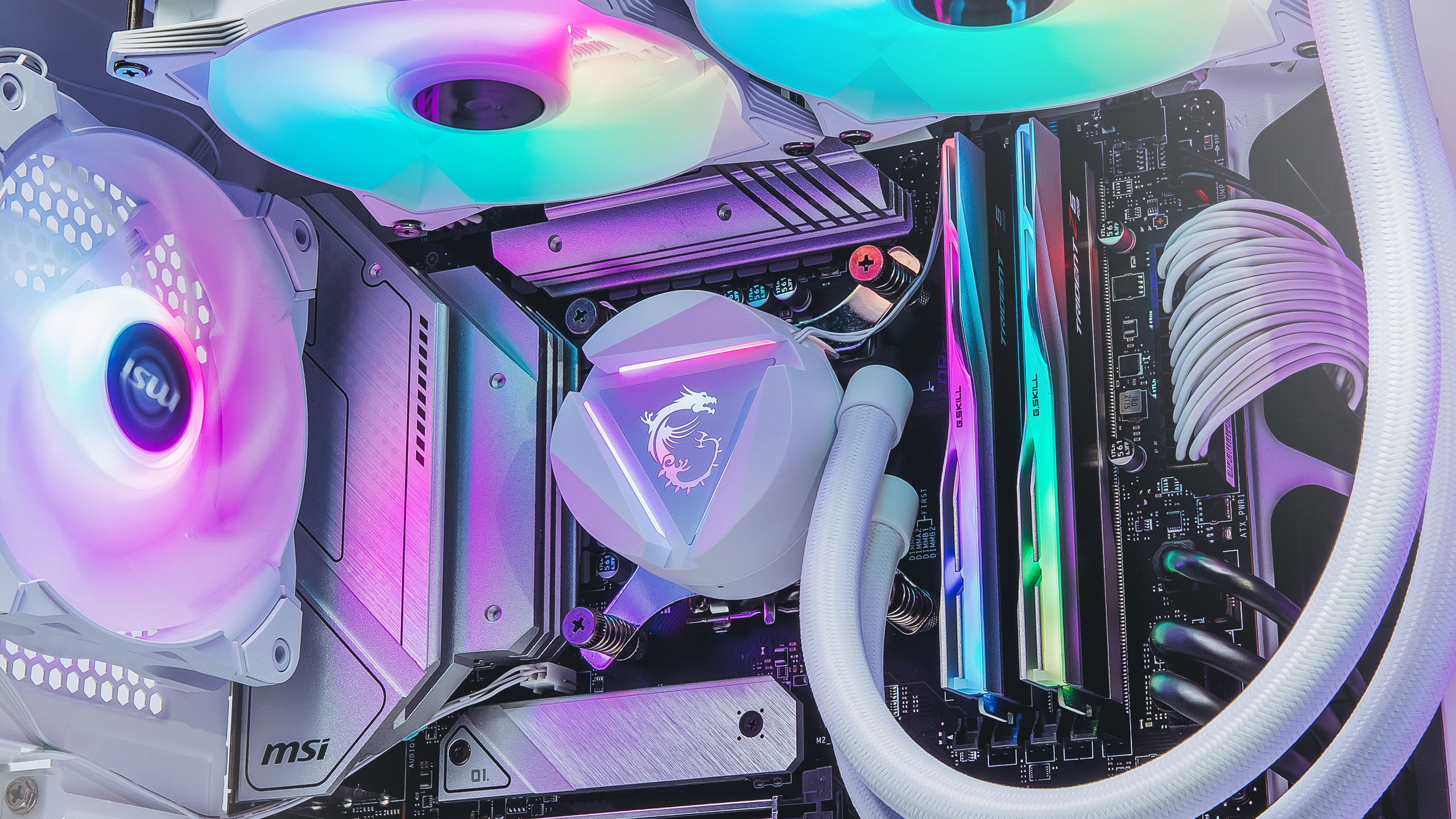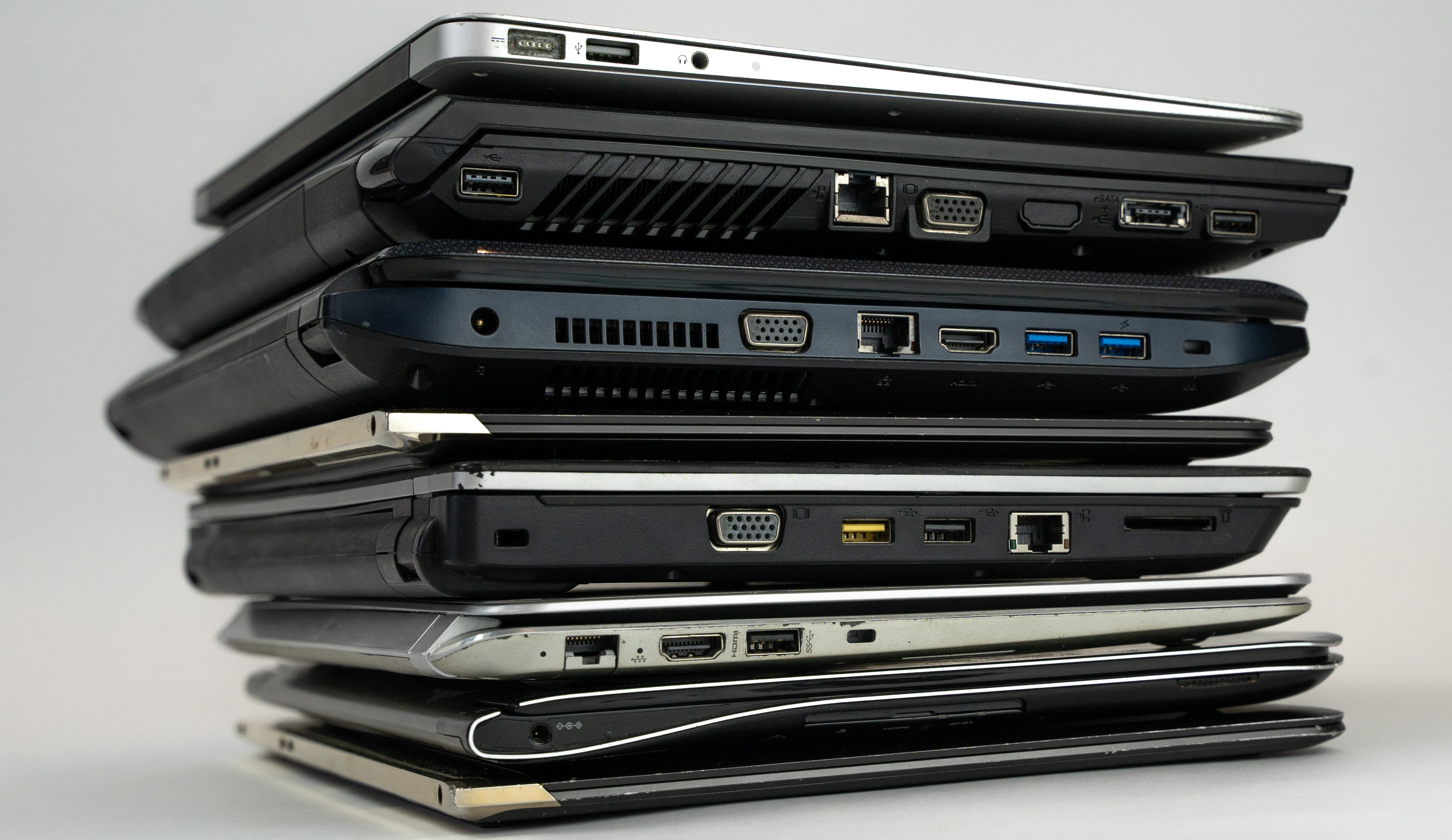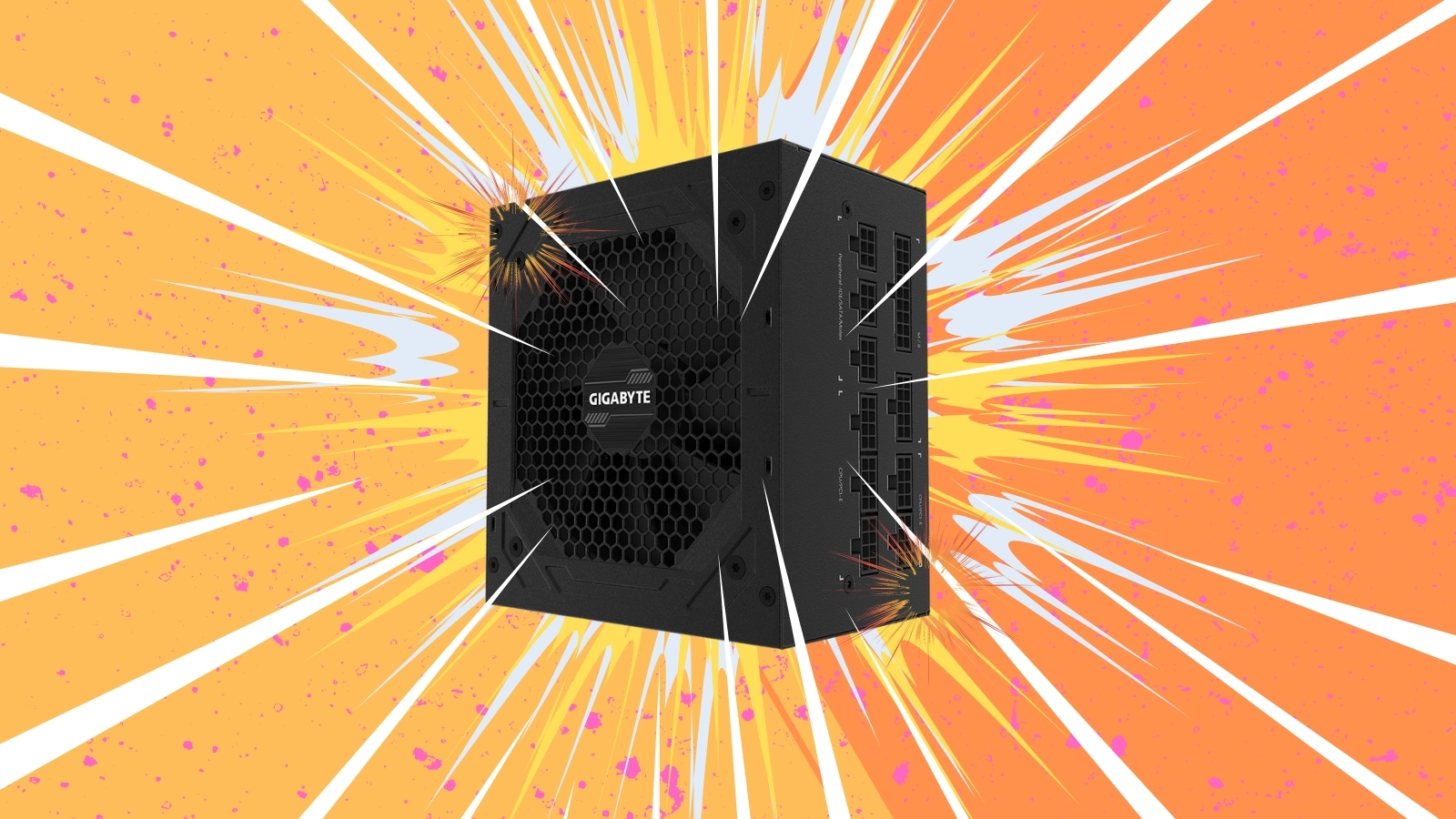How often do you really need to upgrade your PC?
New CPUs and GPUs are here again, but do you really need them?

Sign up for breaking news, reviews, opinion, top tech deals, and more.
You are now subscribed
Your newsletter sign-up was successful
It’s very easy to get carried away with the excitement of new product launches. If you’re a big ol’ nerd like me, you see that some new graphics cards have arrived and all you can think about is cramming them into your PC at putting them through their paces with some crisp 4K gaming.
But once the excitement of getting an RTX 4090 or a shiny new processor dies down, I find myself back doing exactly what I did before: playing pixel-art indie games like Loop Hero and Into The Breach, titles that could probably run on a laptop powered by a hamster wheel.
We often crave the latest hardware, with a looming sense of FOMO that if we don’t have the best kit, we’ll be swiftly left behind when new hardware arrives. Sure, the way our phones work doesn’t help; planned obsolescence and updates that slow down older hardware leave us encouraged to replace our handsets every couple of years, and the regular stream of new PC parts landing could lead you to think that the same would be true of your desktop computer or laptop.
Let me be clear, though: you don’t need to upgrade your computer that frequently, no matter what Intel or Nvidia tells you. In this article, I’m going to break down exactly when you do need to upgrade your hardware - and what to watch out for when that time comes.

Ancient technology
Now, I imagine that some of you will be reading this article on a real clunker of a laptop. I’m talking seriously old-school, mid-2000s Intel Pentium rig with keycaps so worn and stained that you can’t even read them anymore.
If you’re still using hardware like that it’s time to get rid of it. While the ‘two-year rule’ might be a tangible metric used by many tech enthusiasts, I prefer to abide by the ‘ten-year rule’ - if any part of your computer is more than a decade old, it’s time to replace it. At a certain point, you’ll start to lose vital support for security and stability updates; for example, if your computer can’t be upgraded to Windows 10 or 11, you’re going to start losing feature support now that Windows 7 and 8 are officially dead.
Two years, though? That’s too short a timeframe to replace your kit, especially given the rate at which new components are released. Sure, those new processors and graphics cards are almost always a notable improvement on their predecessors, but they don’t immediately make the previous models redundant; in fact, there’s plenty of older hardware that still functions just fine.
Sign up for breaking news, reviews, opinion, top tech deals, and more.
Case in point: I still use a compact 2-in-1 laptop (no, I’m not telling you the brand, I’m no shill) that uses a 9th-generation Intel CPU released back in 2018. And it’s fine - that laptop still runs smoothly when I’ve got a dozen Chrome tabs open and Spotify playing in the background. I won’t be replacing this laptop for a while.

What do you need?
This is the most important question to ask yourself when you’re looking to upgrade your computer or buy something entirely new. What do you personally need from your system? The answer to this question will dictate exactly how old it’s acceptable for your hardware to be.
If you’re a gamer - or you need high-end graphical capabilities for 3D animation or scientific modeling software - then you’ll need a discrete graphics card. When it comes to that GPU, it’s always worth comparing the newest models to what you already have. According to the most recent Steam Hardware and Software Survey, the second most popular GPU among gamers is the Nvidia GeForce GTX 1060 - a card that came out nearly seven years ago!
In case this doesn't make it clear, you really don’t need the latest graphics card to play the latest games. It’s important to consider your ‘target resolution’ when choosing a new GPU; if you’ve only got a 1080p monitor, there’s no point upgrading to a flashy new RTX card designed for playing games at 1440p or 4K. If you do have a 4K monitor and are still rocking a GPU from 2016, then it might be time to upgrade.
The same goes for other components; the 9th-gen Intel Core i7 CPU in my laptop is still perfectly suitable for what I want to use it for, which is mostly just answering emails, writing articles, and watching videos. If I was hoping to use it for more demanding workloads, I might want something a bit newer.
When it comes to Intel processors specifically, it’s important to note that 12th-gen and newer Intel Core CPUs feature a new type of core microarchitecture called big.LITTLE, which splits the total core count into ‘performance’ and ‘efficiency’ cores. This architecture is great for running multiple tasks simultaneously; the efficiency cores handle background processes while the performance cores deal with your primary workload. This is fantastic for Twitch streamers, who need their streaming software running behind the scenes while they play a game.

Mandatory replacements
Of course, sometimes you simply have no choice but to upgrade a component or two. If you upgrade to a new Intel Core or AMD Ryzen processor right now, you’ll need to get a new motherboard, since the CPU socket has been changed and it won’t support older chips. This may create its own upgrade requirements, since your new motherboard might use DDR5 RAM rather than the more widely used DDR4.
Power requirements are another common cause of knock-on upgrades like this. If you buy a beefy new GPU for your gaming PC, there’s a decent chance you’ll need to get a higher-capacity power supply in order to run it properly. You should also be wary of bottlenecking if you upgrade only a single component; does your PC have enough memory to get the best performance out of your new CPU?
One area where it’s down to you to decide when you need to upgrade is storage. Now, if you’re still rocking an old HDD, I’m going to put my foot down and say it’s time to buy a new drive; SSD storage is pretty dang cheap these days, and even a bog-standard SATAIII SSD will be massively faster than an aging hard drive - and they last longer too, due to their lack of moving parts.
Assuming you’ve already got an SSD, you hopefully shouldn’t need to upgrade it unless it fails. There’s one key caveat here, though: if you think you need more storage capacity for your files, it’s on you to be proactive and get your hands on a larger drive (or a secondary drive, since most computers can support more than one SSD).

Three key rules
With all this in mind, I’ve distilled the essence of this article into three easy-to-remember guidelines for when and if you need to upgrade your computer. Here they are:
- Is it more than ten years old? If so, it’s definitely time to upgrade. Individual components of this age will likely be reaching the end of their physical lifespan (if they haven’t passed it already and are clinging on out of spite) and won’t be getting the same kind of virtual support from the manufacturer that you really need.
- Does it still do everything I need it to? If so, don’t upgrade. If you’ve got a perfectly functional laptop or desktop PC that can handle all the daily tasks you want to throw at it, there’s really no need to buy anything new - doing so only costs you money you didn’t need to spend and contributes to the growing global problem with e-waste.
- Can I get away with only upgrading one component? The answer here is usually - though not always - no. It’s easy to think that a new GPU will fix all your gaming woes, but the older your system, the more likely it is that replacing just one part will create compatibility issues or bottlenecks. Upgrading your PC piecemeal only works if you can afford to do it regularly, ship-of-Theseus-style. If you’ve got an ancient PC that you want to resurrect, it’s better to work out exactly which parts are going to hold you back if you don’t upgrade them.
I wanted to make a catchy mnemonic device for remembering these points but, well… look at them, they’re too long. In any case, I hope this guide has proved helpful to you - and perhaps prevented you from a hasty, unnecessary upgrade!

Christian is TechRadar’s UK-based Computing Editor. He came to us from Maximum PC magazine, where he fell in love with computer hardware and building PCs. He was a regular fixture amongst our freelance review team before making the jump to TechRadar, and can usually be found drooling over the latest high-end graphics card or gaming laptop before looking at his bank account balance and crying.
Christian is a keen campaigner for LGBTQ+ rights and the owner of a charming rescue dog named Lucy, having adopted her after he beat cancer in 2021. She keeps him fit and healthy through a combination of face-licking and long walks, and only occasionally barks at him to demand treats when he’s trying to work from home.